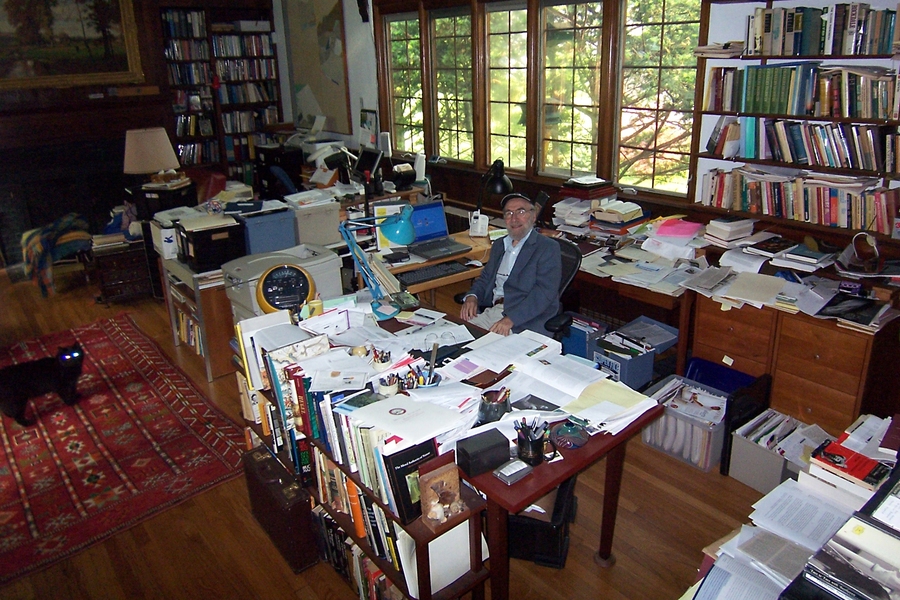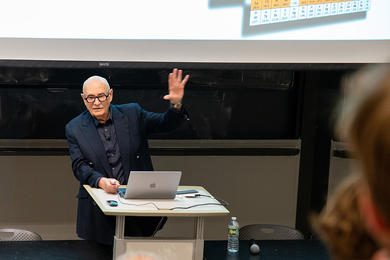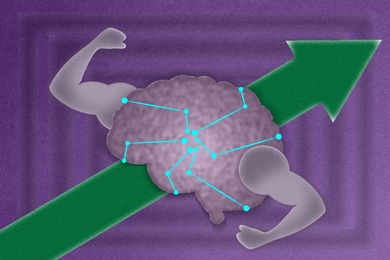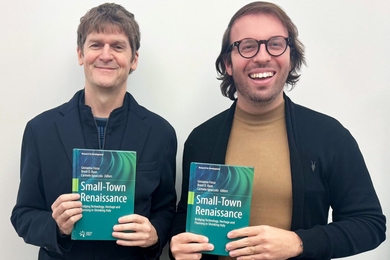Bruce Mazlish, a highly regarded historian who served as a professor of history at MIT for more than 50 years, died of natural causes on Nov. 27. He was 93 years old.
A winner of the prestigious Toynbee Prize, which recognizes social scientists for significant academic and public contributions to humanity, Mazlish published numerous influential volumes in the course of his career, including "The Western Intellectual Tradition: From Leonardo to Hegel" (Harper Bros, 1960), which is still used in college courses today.
Mazlish pioneered the field of psychohistory, along with historians such as Erik Erikson, in volumes including "James and John Stuart Mill: Father and Son in the 19th Century" (Basic Books, 1975). Over more than five decades as a scholar, he published more than two dozen volumes of history and was named a fellow of the American Academy of Arts and Sciences.
Born in Brooklyn, New York, on Sept. 15, 1923, Mazlish attended Boys High School and graduated from Columbia University in 1940. During World War II, he served in the Office of Strategic Services, the precursor to the modern Central Intelligence Agency, and he later returned to Columbia to earn his PhD in European studies.
After spells as a journalist and then a high school teacher, Mazlish joined the faculty of the University of Maine in Brunswick, before coming to MIT in 1955. He subsequently spent the rest of his professional life at the Institute, retiring in 2003. Courses he taught include “Marx, Darwin, and Freud,” “Modernity, Post-modernity and Capitalism,” and “The New Global History.”
Mazlish’s first book, "The Western Intellectual Tradition," co-authored with British mathematician Jacob Bronowski, argued that the foundations for modern science can be found in a set of insights initially made during the Renaissance. This and other of Mazlish’s volumes found a broad and enthusiastic general readership. His well-known profile of President Richard Nixon, "In Search of Nixon," which was published just a month before the Watergate revelations, remains widely read to this day.
In the late 1980s, Mazlish began to explore post-WWII globalization, examining the idea of humanity from an historical and interdisciplinary perspective. Out of this came, among other things, the New Global History Initiative, launched in the early 2000s with the goal of reimagining the study of history in a more pluralistic, multicultural age.
Mazlish is survived by his wife, Neva Goodwin, of Cambridge, Massachusetts; his sister, Elaine Wyden, of Westport, Connecticut; and a former wife, Anne Mazlish, of Mount Desert, Maine. His first marriage was to Constance Shaw, who passed away in 1993. He is also survived by his four children, Cordelia Savala and Peter Shaw Mazlish of Atlanta, Georgia; Anthony Mazliish of Chevy Chase, Maryland; and Jared Mazlish of Burlington, Vermont; as well as two stepchildren and six grandchildren.






